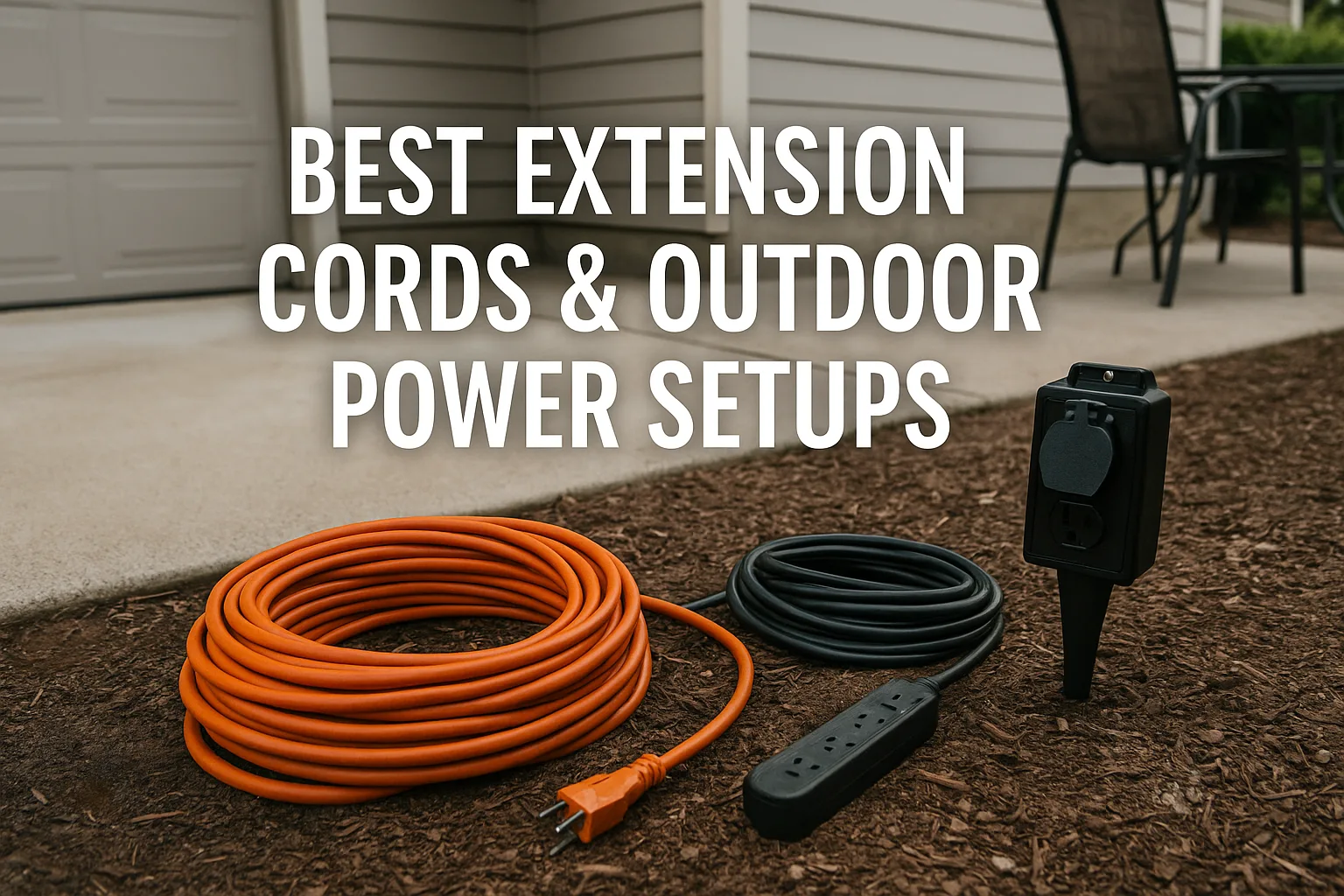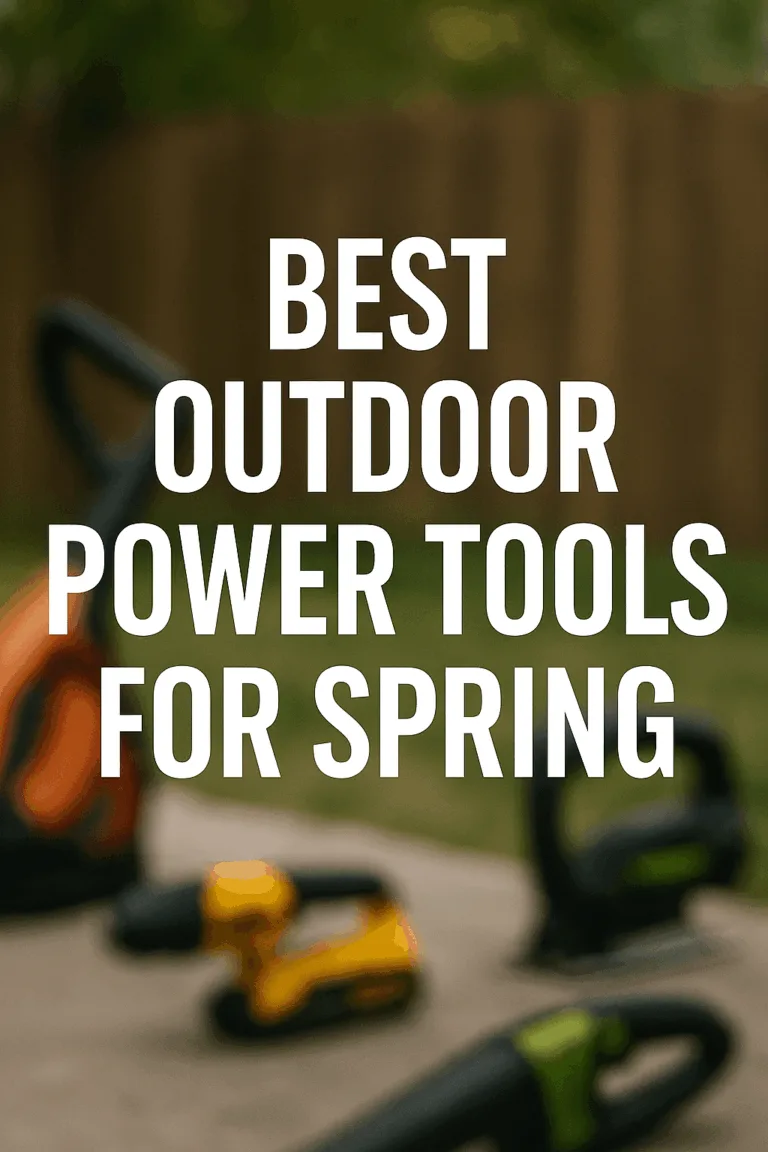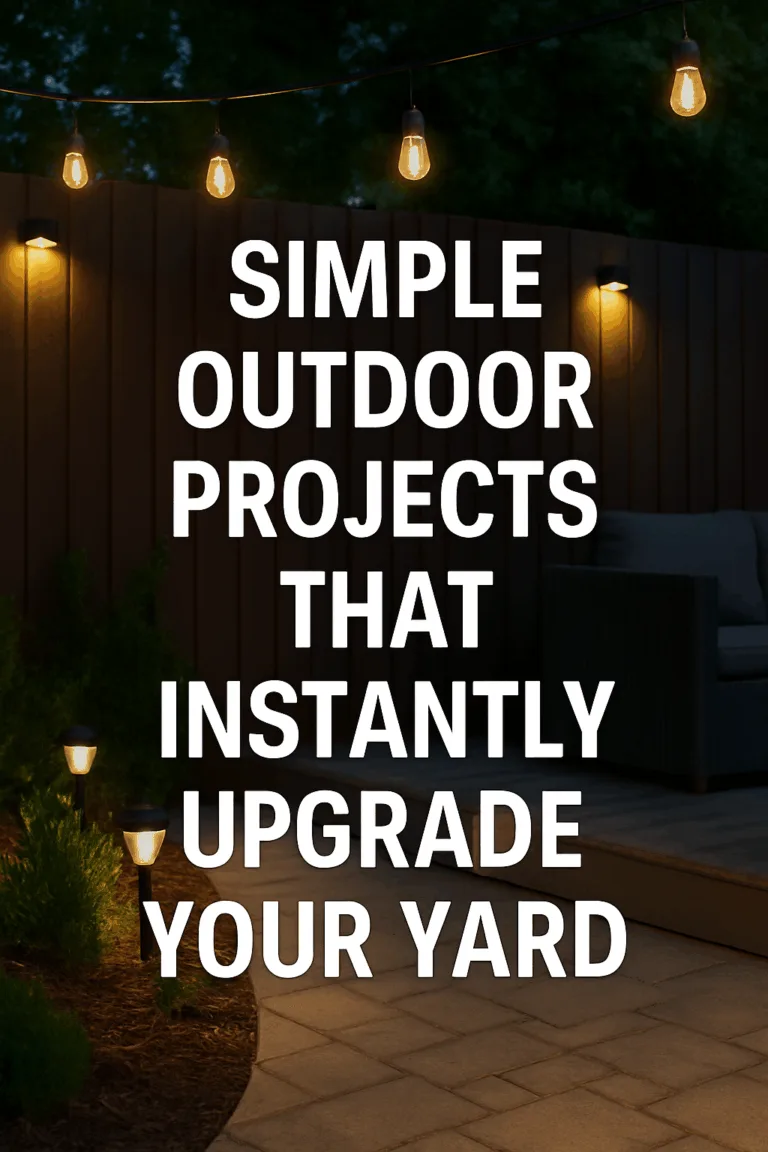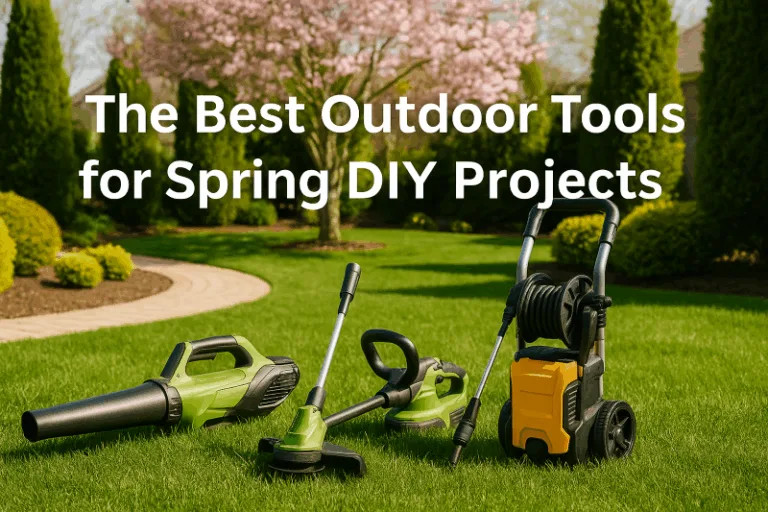Choosing the right extension cords for outdoor projects can make your setup safer, more efficient, and a lot less frustrating. Not all cords are created equal and using the wrong one can fry your gear or slow down your work. Here’s how to choose the right extension cords and power setups for your next outdoor DIY project—plus a few bonus tools we never start a build without.
⚡ Extension Cord Basics: What DIYers Get Wrong
If you’re still using a skinny orange cord from the garage, here’s what you need to know:
- Length matters — Longer cords = more voltage drop
- Gauge matters more — Lower numbers = thicker wire = better performance
- Indoor cords ≠ outdoor cords — You need weather-rated, grounded cables
For most power tools, go with 12/3 or 14/3 gauge cords rated for outdoor use.
🧰 Our Favorite Extension Cords for DIY Projects
- Iron Forge 100-Foot 12/3 Outdoor Cord — Heavy-duty, water-resistant, and perfect for saws and compressors
- Southwire 50-Foot Contractor Cord — Flexible and durable in heat or cold
- Woods 25-Foot Power Block Cord — Great for short-range plug-ins or shop vacs
🔄 Bonus: Extension Cord Reels (No More Knots)
Tired of fighting a tangled cord every weekend?
We use the Bayco Cord Reel with Hand Crank to keep our workspace clean and our cords knot-free.
Other solid picks:
- Power Station Reel – Includes outlets + overload protection
- Retractable Wall-Mount Cord Reel – Great for garage setups
🧯 Don’t Forget Weather Protection
Spring weather is unpredictable. Use these to protect your power source:
- Outdoor Outlet Covers – Keep plugs dry even in rain
- 3-Prong Power Splitter – For running multiple tools off one safe outlet
- Surge-Protected Power Stake – Great for landscape lighting + power tools
🧠 Pro Tips for Power Outside
- Never daisy-chain multiple extension cords
- Avoid coiling the cord during use (causes heat buildup)
- Don’t exceed the amp rating of the cord or outlet
- Use GFCI-protected outlets whenever possible




